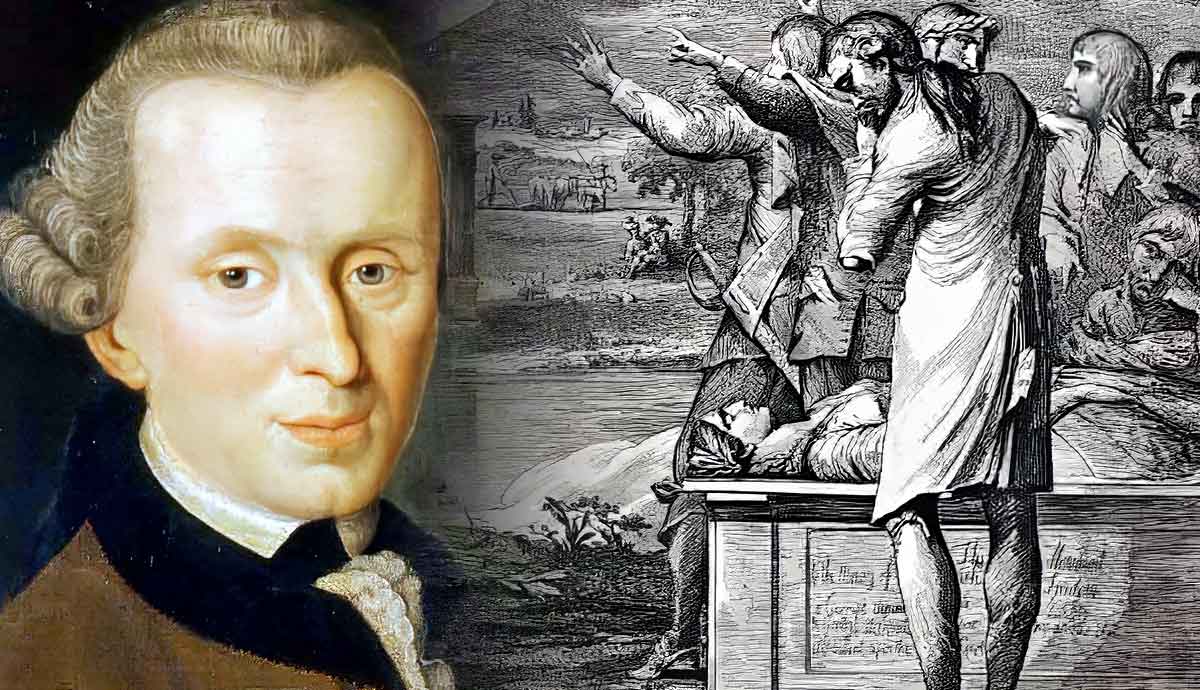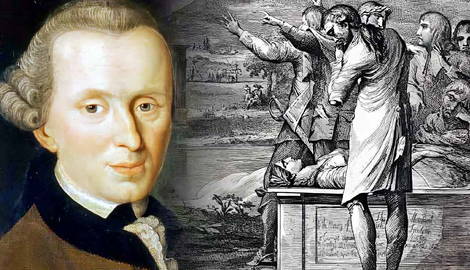
The categorical imperative is an idea in moral philosophy, which some philosophers – Immanuel Kant and those who have followed his ethical guide – think to be the central principle of ethics. Its purpose is to provide the means for evaluating moral actions and for making moral judgements. Generally speaking, the categorical imperative makes reference to absolute commands, such as “don’t steal”, or “don’t be late.”
The Categorical Imperative Is a Moral Rule

The Categorical Imperative is a moral principle, but more than that it constitutes a moral rule. An imperative is something that we must do. A rule is a certain kind of imperative, one which applies at all times and places rather than at some particular moment. We must therefore be able to show self-restraint and temper our natural instincts in order to follow it. The word ‘categorical’ in the Categorical Imperative refers to the binding, absolute character of the Categorical Imperative. In other words, the Categorical Imperative is unconditional.
However, we have to be careful here. The Categorical Imperative applies to human beings unconditionally, but not – say – to dogs or cats. When we say that the Categorical Imperative is unconditional, we are excluding a certain kind of condition. Those are the conditions of human capacity. In other words, the Categorical Imperative is a moral rule which applies only to rational, autonomous beings. These are, for Kant, some of the main traits of human beings.
Universal Law and Respect

The Categorical Imperative is a moral rule, but it is – at the same time – several different variants. These different formulations of the Categorical Imperative are, between them, meant to summarize the Categorical Imperative for us. The first form of the Categorical Imperative is known as the “Formula of the Universal Law of Nature”. This formulation states that we should “act only in accordance with that maxim through which you can at the same time will that it become a universal law”.

The second formulation of the Categorical Imperative focuses less on whether we can universalize our actions, and more on the way we relate to others. More specifically, Kant argues that we should never treat other people as a means to an end, but rather we should treat them only as an end in themselves. What this means is that, rather than acting or treating others as tools to use for our own purposes, we should always be able to justify the way we treat others according to what is a good end for them. In many ways, this second formulation is a proper reflection of Kant’s respect for human beings and their innate capacities.
The Categorical Imperative Says We Are Free

Kant’s focus on human beings and their capacities in morality is part of what was called the ‘Copernican Revolution’ he instituted in philosophy, with its renewed focus on human beings rather than the world considered in isolation. Kant is very concerned with human autonomy – with the freedom of our will. It is no surprise, therefore, that the formulation of the Categorical Imperative is that we should conceive of “the Idea of the will of every rational being as a will that legislates universal law.”
We’re back to an idea from the first formulation – that of acting as in a universal way. However, what is new is that we’re meant to think about what we can universalize not as a good in its own right. Rather, we are meant to think about it as a kind of test for whether or not we are treating other people in an appropriate way.
Kant doesn’t reference freedom as a means of creating our own values. Rather, the kind of freedom which matters for Kant is our ability to pursue what is objectively morally right, and not to be dissuaded from this task by external forces.










